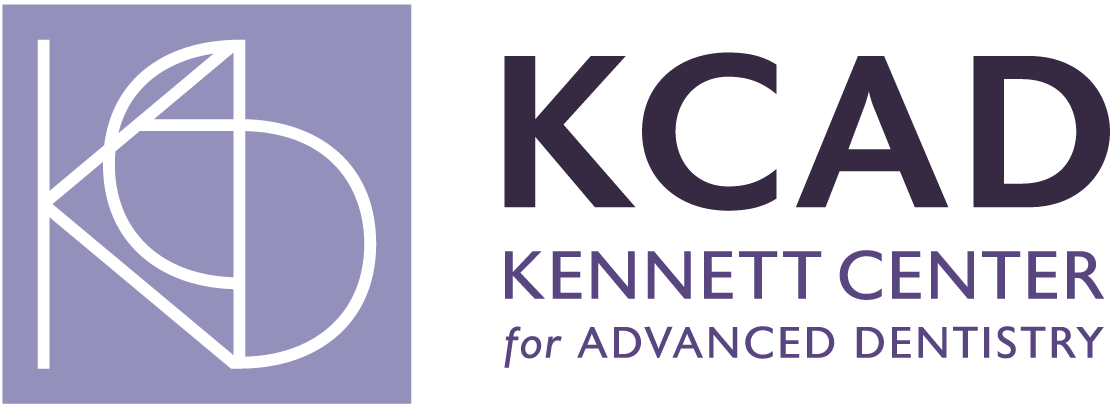The Cost of Dental Cleanings in Kennett Square, PA
Breaking Down Dental Cleaning Costs With Dr. Patellis
While dental cleanings are vital for your oral health, our dentist understands that cost can deter patients. Fortunately, most regular dental cleanings are covered under insurance plans, especially at Kennett Center for Advanced Dentistry. Our Kennett Square dentist breaks down the costs of dental cleanings and the resources you need to receive essential dental care and maintain good oral health.
If you’re looking for a new Kennett Square, PA, dentist, call our dental practice today to schedule your routine professional cleaning at 610-444-6311. We also proudly serve patients coming from West Chester, Chadds Ford, Oxford, and the surrounding areas.

How Much Do Dental Cleanings Cost?
The average cost of a dental cleaning in the United States ranges from $75 to $200 per session. However, teeth cleaning costs can go up if additional treatments are required. For example, scaling and root planing can cost up to $400 per deep cleaning session. Your total cost will also be dependent upon certain factors, such as location, your dentist’s experience, and more.
Factors That Influence Dental Cleaning Costs
Several factors can influence the average cost of routine dental care. These factors may include:
- Location: The costs vary depending on the location of the dental office. Dental offices located in urban areas tend to charge more than those in rural areas.
- Type of Cleaning: The cost also depends on the type of cleaning required. Routine cleaning typically costs less than periodontal maintenance or scaling and root planing.
- Dental Insurance: Dental insurance can significantly reduce the cost of routine dental cleaning. The amount of coverage varies depending on the type of insurance plan.
- Additional Treatments: If additional treatments are required, such as applying fluoride or dental X-rays, the cost of deep dental cleaning can increase.
- The Experience and Training of the Dentist: More experienced dentists typically charge more than less experienced dentists.
Additional Costs
Additional costs can accumulate during a professional teeth cleaning. These costs will vary depending on the individual’s dental health and the type of teeth cleaning required.
Some additional costs that may arise include:
- Dental X-rays: If X-rays are needed during a dental cleaning, there may be an additional cost. The cost of X-rays can vary depending on the number of images needed.
- Fluoride treatment: Fluoride treatments are optional, but they can help protect against tooth decay. If a patient chooses to have fluoride treatment during their dental cleaning, there may be an additional cost.
- Deep cleaning: If it’s been a while since their last cleaning and a patient has a significant amount of plaque buildup or gum disease, they may require a deep cleaning procedure, also known as scaling and root planing. Deep cleanings are more extensive than routine cleanings and will cost more.
- Dental sealants: Dental sealants are a protective coating applied to the teeth to prevent decay. If a patient chooses to have dental sealants applied during their routine dental cleaning, there may be an additional cost.
Make sure to discuss any potential additional costs with the dental office before scheduling a cleaning. Many dental offices will provide an estimate of the total cost of your teeth cleaning and any additional treatments before the appointment.
Patients should also check with their insurance provider to see if additional dental services and treatments are covered under their insurance plan. By understanding the potential additional costs associated with a dental cleaning, patients can make informed decisions about their oral health and finances.

Dental Insurance and Financing
Dental insurance can help you pay for the cost of a regular dental cleaning, as well as other dental procedures. Your specific dental coverage will vary depending on the insurance plan, but most plans will cover at least two cleanings per year.
A general overview of coverage for insurance looks like:
- Preventive care: Most dental insurance plans will cover preventive care at 100%, meaning you won’t have to pay anything out of pocket. This includes dental cleanings, exams, and X-rays.
- Basic procedures: Basic procedures, such as dental fillings and extractions, are typically covered at 80%. This means you will have to pay 20% of the cost out of pocket.
- Major procedures: Major procedures, such as crowns and root canals, are typically covered at 50%. This means you’ll have to pay 50% of the cost out of pocket.
When it comes to picking your insurance plan, keep these tips in mind:
- Choose a plan that covers preventive care at 100%. This will ensure that you don’t have to pay anything out of pocket for your dental cleanings.
- Make sure the plan you choose is in-network with your dentist. This ensures that you’ll get the maximum coverage for your dental cleanings.
- Be aware of the deductibles and copays for your plan. This will help you budget for the cost of your dental cleanings.
- File your dental insurance claims promptly. This ensures that you’ll get reimbursed for the cost of your dental cleanings.
If you’re uninsured and looking for alternatives, you may consider financing options:
- Dental credit cards: There are several dental credit cards available that offer financing options for dental procedures, including dental cleanings. These cards typically offer 0% interest for a certain period, such as 6 or 12 months, on purchases made over a certain amount.
- In-house dental financing: Some dentists offer in-house financing options for their patients. This can be a good option if you have bad credit or do not qualify for a dental credit card.
- CareCredit: CareCredit is a healthcare credit card that can be used to finance dental cleanings and other medical procedures. CareCredit offers 0% interest for 6, 12, 18, or 24 months on purchases of $200 or more when you make the minimum monthly payments and pay the full amount due by the end of the promotional period.
Frequently Asked Questions
Is it cheaper to pay out of pocket for a dental cleaning?
It may be cheaper to pay out of pocket for a standard dental cleaning if you don’t have dental insurance, as some plans may not fully cover the cost. However, if you have insurance, using your benefits for routine cleanings is typically more cost-effective. Most dental insurance plans cover preventive care, including cleanings, at 100%, so you’ll only need to pay for the co-pay or deductible, if applicable. It’s important to check with your insurance provider to confirm your coverage.
What’s included in a dental cleaning?
A professional dental cleaning typically involves several steps:
- Plaque and tartar removal: A dental hygienist will use specialized tools to remove plaque and tartar from your teeth, especially from areas that are hard to reach with a toothbrush.
- Polishing: After cleaning, your teeth will be polished to remove surface stains and leave them feeling smooth.
- Fluoride treatment: In some cases, fluoride may be applied to help strengthen tooth enamel and prevent cavities.
- Exams: The dentist will typically perform a comprehensive exam of your teeth and gums, checking for signs of cavities, gum disease, or other oral health issues. Your dentist may also take X-rays if needed to check for underlying dental issues, which could result in additional costs.
Does dental cleaning cost more if I need a deep cleaning?
Yes, a deep cleaning, also known as scaling and root planing, can cost more than a routine cleaning. Deep cleanings are recommended when there is significant tartar buildup below the gum line or signs of gum disease. This procedure requires more time and a higher level of expertise, which can increase the cost. Your dentist will explain the need for a deep cleaning and provide you with a cost estimate before proceeding.
Can I use my dental insurance for a cleaning if I haven’t had one in a while?
Yes, most dental insurance plans will cover at least two cleanings per year. If you’ve missed a cleaning for a while, your insurance should still cover the full cost of a routine cleaning, as long as it’s within the plan’s annual coverage limits. Be sure to check with your insurer to understand your coverage and any applicable waiting periods if you’ve had a lapse in care.
Invest in a Healthy Smile with Dr. Patellis!
Don’t let the costs of a dental cleaning prevent you from maintaining good oral health. Routine dental cleanings are an investment in your oral health that can save you from costly dental procedures down the line. Our dental team us here to discuss any questions you have about teeth cleanings and the out-of-pocket cost for any procedures.
Contact our Kennett Square dental office today at 610-444-6311 to discuss fees and potential financing options for routine cleanings. We also proudly serve patients coming from West Chester, Chadds Ford, Oxford, and the surrounding areas.
